Michelle Worthington's Blog, page 20
January 19, 2016
Top tips for Authors: Marketing your book locally
 Staying local can be a great way to promote and market your book. A little known side effect of getting your book publishing is having to learn how to market yourself as an author, as well as selling your book and most of us have limited time and budget. A successful author is also a sales person, an accountant, an administration officer, a graphic designer and a self-promotion guru.
Staying local can be a great way to promote and market your book. A little known side effect of getting your book publishing is having to learn how to market yourself as an author, as well as selling your book and most of us have limited time and budget. A successful author is also a sales person, an accountant, an administration officer, a graphic designer and a self-promotion guru. At the same time, millions of other authors are trying to do the same thing, and marketing via social media may not be the best way to go. It is very easy to get lost in the white noise of book promotion. I have found through my experience that marketing your book locally brings the best results. It is definitely a case of “it’s not what you know, it’s who you know.” Use the contacts you already have, such as your children, grandchildren or friends who work at schools or kindys to get your first storytelling visits. Always ask for the opportunity to sell you books by pre-order or post-order form and on the day.
Local women’s groups, seniors groups and interest groups that your book relates to are often happy to have you set up a trade table at their meeting or party in exchange for the cost of admission and a lucky door prize. Have a short speech prepared in case you are asked to say something about yourself and your journey to getting your book published. Your local council website will list events in your area that you may be able to participate in.

Approach your local book store and library as they will already have time set aside for story telling and are always in need of new people and new books. Libraries also have rooms that are available to hire for a special themed event. Your aim is to draw a crowd, and book stores love a captive audience. Have a photographer friend take photos and offer them to the book store to put on their website, as well as your own.
Make sure you are booked up with events that fit your individual schedule for 4 weeks in advance, to give you enough time to get new engagements if some cancel. Don’t take on more than you can handle and always be professional, when it comes to your marketing material, your phone manner and what you wear on the day. If your book has a theme, kids love dress ups and interactive play, so let your imagination run wild! Get involved in your local community.
 Network with other local authors, illustrators and publishers via Facebook, LinkedIn, twitter or a website blog. Remember that if you can help others, they may be in a position to help you in return. Don't expect to get millions of dollars in sales this way, but spreading the local love can be a great way to increase your followers.
Network with other local authors, illustrators and publishers via Facebook, LinkedIn, twitter or a website blog. Remember that if you can help others, they may be in a position to help you in return. Don't expect to get millions of dollars in sales this way, but spreading the local love can be a great way to increase your followers.Talk soonMichellewww.michelleworthington.com www.michelleworthington.com
Published on January 19, 2016 08:00
January 18, 2016
Top Tips for Literacy: How to help kids who don't care about bedtime stories
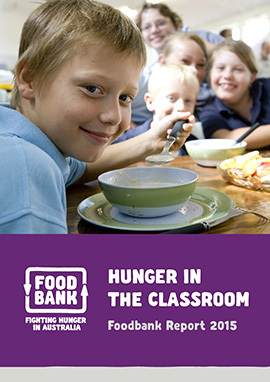
According to the teachers surveyed by the Hunger in the Classroom Foodbank Report 2015, over two thirds of students who miss out on breakfast can find it difficult to concentrate (73%) or can become lethargic (66%), with over half experiencing learning difficulties (54%) or exhibiting behavioural problems (52%). However, it is not just the children themselves who are affected, with an overwhelming number of teachers (82%) claiming that their workload increases when they have hungry and distracted students in their classroom. 35% of teachers also report that students coming to school hungry or without breakfast are more likely to be late and 29% report they are absent from school more frequently. The overwhelming consensus from teachers surveyed (95%) is that coming to school hungry impacts students’ abilities to reach their full potential both in and outside of the classroom.
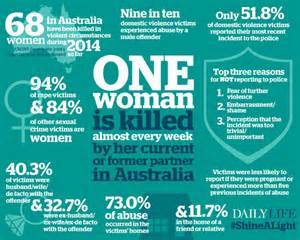 In March 2015, the Prime Minister described domestic violence as a ‘tragic and deadly epidemic’. Relationships Australia says children who live in homes where there is domestic violence grow up in an environment that is unpredictable, filled with tension and anxiety and dominated by fear. This can lead to significant emotional and psychological trauma, and getting through each day is the main objective so there is little time left for fun, relaxation or bedtime stories.
In March 2015, the Prime Minister described domestic violence as a ‘tragic and deadly epidemic’. Relationships Australia says children who live in homes where there is domestic violence grow up in an environment that is unpredictable, filled with tension and anxiety and dominated by fear. This can lead to significant emotional and psychological trauma, and getting through each day is the main objective so there is little time left for fun, relaxation or bedtime stories.We can no longer say these children are the minority. Many people I know who work in schools are trying to deal with this epidemic out of their own pockets and in their own time. It is a national responsibility to the next generation of Australians.
When literacy experts continue to preach the age old adage of the importance of bedtime stories, let us remind them of the importance of breakfast and a safe place to call home. These problems need to be addressed by our government before any further funding is allocated to archaic blanket testing of students and literacy policy.
If you would like to find out more information about the Breakfast in Schools program, follow this linkhttp://www.healthyfoodforall.com.au/school-breakfast-program/If you are experiencing domestic violence, please contact http://www.rizeup.com.au/If I can help in any way, please don't hesitate to contact me. talk soonMichellewww.michelleworthington.com www.michelleworthington.com
Published on January 18, 2016 08:00
January 17, 2016
Best Ever List of US Agents for Picture Book and YA Authors
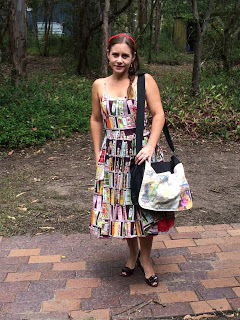
If like me, you are on the hunt for the perfect picture book or YA agent, here is a list of the agents I have found that are open to submissions in those genres. They may not all be accepting right now, but it is great to follow them on twitter or become familiar with the types of stories they publish so you have the best chance of finding an agent who will love your story as much as you. Remember, a no is only a not now, not me... don't give up.
Talk soon
Michelle
www.michelleworthington.com
Adams Literary:
Tracey Adams
Josh Adams
Amster Lit :
Betsy Amster
Mary Cummings
Andrea Brown Literary Agency:
Jennifer Mattson
Jennifer Rofe
Kelly Sonnack
Lara Perkins
Laura Rennert
Caryn Wiseman
Jamie Weiss Chilton
Barry Goldblatt Literary:
Barry Goldblatt
The Bent Agency:
Jenny BentBrooks Sherman
Gemma Cooper
Susan Hawk
Louise Fury Bookstop Literary:
Kendra Marcus
Minju Chang
Bradford Literary Agency:
Natalie Lakosil Bright Literary Agency: Vicki Willden-LebrechtAnne Moore Armstrong
Suzie Brearley Catbird Productions:
Kirsten Hall
The Chudney Agency:
Steven Chudney Corvisiero Agency:
Marissa Corvisiero
Samantha Bremekamp
Creative Authors:
Isabel Atherton
Curtis Brown:
Elizabeth Harding
Ginger Knowlton
DeFiore and Company:
Laurie Abkemeier
Meredith Kaffel Simonoff
Ashley Collom
Dunham Literary:
Jennie Dunham
Dunow, Carlson & Lerner:
Edward Necarsulmer IV
Henry Dunow
Jennifer Carlson
Dystel& Goderich Literary Management:
Stacey Kendall Glick
JohnRudolph
East West Literary:
Deborah Warren
Eden Street:
Liza Voges
Erin Murphy Literary Agency:
Erin Murphy
Ammi-Joan Paquette
Tricia Lawrence
The Ethan Ellenberg Literary Agency:
Ethan Ellenberg
Evan Gregory Fine Print Literary:
Penny Moore
FolioLiterary Management:
Emily van Beek
John Cusick
Fuse Literary:
SaraSciuto
Foundry Literary & Media:
Adriann Ranta
Full Circle Literary:
Adriana Dominguez
Stefanie Von Borstel
Gillian MacKenzie Agency:
Gillian MacKenzie
Gina Maccoby Literary Agency :
Gina Maccoby
Greenburger and Associates:
Brenda Bowen
Bethany BuckFaith Hamlin Greenhouse Literary Agency:
Sarah Daives
Polly Nolan, UK Hannigan Salky Getzler:
Carrie Hannigan
Hen& Ink:
Erzsi Deak
The Herman Agency:
Ronnie Ann Herman Ink Well Management: Charlie Olsen
Stephen Barbara
Jean V. Naggar Literary Agency:
Jennifer Weltz
Laura Biagi
Jennifer DeChiara Literary Agency:
Jennifer DeChiaraLinda Epstein
Marie Lamba
Stephen Fraser
Vicki Selvaggio Jill Corcoran Literary Agency:
Jill Corcoran
Eve Porinchak Leslie H. Strobbe Literary Agency: Sally Apokedak
Levine, Greenberg, Rostan Literary Agency:
Kerry Sparks The Literary Group Intl.:
Frank Weimann
Katherine Latshaw
Jeff Silberman
Liza Royce Agency:
Liza Fleissig
Ginger Harris
Mansion Street Management:
Michelle Witte
Marsal Lyon Literary Agency:
Kathleen Rushall
Martin Literary Management:
Clelia Gore
McIntosh& Otis:
Christa Heschke
Nancy Gallt Literary Agency:
Nancy GalltMarietta B. Zacker
NewLeaf Literary & Media:
JoannaVolpe
Olswanger Literary:
Anna Olswanger
Painted Words:
Lori Nowicki Pippin Properties:
Elena Giovinazzo
Heather Alexander
Holly McGhee
Prospect Agency:
Rachel Orr
Teresa Kietlinski
Linda Camacho
Red Fox Literary:
Abigail Samoun
Karen Grencik
Danielle Smith
Red Sofa Literary:
Bree Ogden The Rights Factory
Ali McDonald Rodeen Literary Management:
Lori Kilkelly
Paul Rodeen
Rubin Pfeffer Content:
Rubin Pfeffer
Sadler Children’s Literary:
Jodell Sadler Sarah Jane Freymann Literary Agency:
Jessica Sinsheimer
Scovil Galen Ghosh Literary:
Ann Behar Sean McCarthy Literary Agency:
Sean McCarthy
Sheldon Fogelman :
Sheldon FogelmanJanine Le
Amy Stern
Sterling Lord Literistic:
Douglas StewartErica Rand Silverman
Stimola Literary Studio:
Rosemary Stimola
Allison Remcheck Storm Literary Agency:
Essie White
Thompson Literary Agency:
Cindy Uh
Transatlantic Literary Agency:
Fiona Kenshole
Tsunami Worldwide Media:
Melissa McComas
The Unter Agency:
Jennifer Unter
Upstart Crow Literary:
Alexandra Penfold
Warner Literary Group:
Sarah Warner Waverly Place Literary: Debbie Carter
Waxman Leavell:
Julie Stevensen Wells Arms Literary:
Victoria Wells Arms
Wernick & Pratt:
Emily Mitchell
Linda Pratt
Marcia Wernick
Willow Words Literary Agency:
Sheri Bestor
Writers House:
Jodi Reamer
Brianne Johnson
Rebecca Sherman
Stephen Barr
Steven Malk
www.michelleworthington.com
Published on January 17, 2016 08:00
January 15, 2016
Top Tips for Authors: Overcoming submission anxiety

Worry or fear can take the joy out of life. Most of us can find enough things to worry about, without adding 'wanting to be a published author' to the list. Paying bills, saving for a house, buying a new car, beating the high cost of living, the difficulties of bringing up children, problems of personal health and the precarious international situation – these are only a few of the things I worry about. I used to let worrying stop be from following my dream of being a published picture book author. I suffered from "what if-itis."
It is simply not true that some people have nothing to be concerned about. One wonderful thing I have learnt if that my life will never be free from trouble. I am a mother for goodness sake!!!
Worry shouldn't hold you back from doing the things you really want to do. Don’t be fearful of making plans and decisions, but keep in mind that things change. My publishing career has not turned out what bit how I thought it would, but I wouldn't change a thing. I have learned such valuable lessons and made wonderful life-long friends. I don't like using the word 'journey' since Ricky Martin claimed it, but it is a 'one foot in front of the other' scenario.
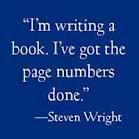
My eldest child is a terrible worrier, and finds it very hard to go to sleep. Lots of reassuring pats and soft words are need to calm his mind enough to let his brain switch off long enough for him to close his eyes and regulate his breathing. One thing that really works is telling him, "dont worry, your worries will be there in the morning" which I guess isn't in the parental textbook, but it works. All your worries about 'what if' or 'what next' will still be there after you take the dive and send your manuscript to publishers. Worry about getting it published first, then worry about the other worries later.
I wish I could take your worries away for you, but I can't. I can only wish you the strength and grace to push through to the pride and peace that awaits you on the other side. If I can be a published author, so can you.
Talk soon
x Michelle
www.michelleworthington.com
Help on Heels
www.michelleworthington.com
Published on January 15, 2016 08:00
January 14, 2016
Top Tips for Authors: ReviMo

We are each gifted in a unique and important way. It is our privilege and our adventure to discover our own special light. ~Mary Dunbar
A ray of light from the sun is the cleanest, most perfect thing we can see with the naked eye. It can pass through a murky medium, but it still comes out as pure as it went in. The circumstances of you inner and outer life will change depending on the source of your inner light. What is your source of light? Revision allows a new light to shine on a book that will eventually reflect your talent.
Endless possibilities are yours if you will open your eyes and see them. It is time to awake to your priveledges and advantages. If you do not, and choose to stay asleep when you ought to be awake, to dream when you ought to be doing, you will miss opportunities and be caught in dangers that need a special wakefulness and watchfulness to guard against. When I started writing again after a long break, I had an unparalleled occasion to gain a vivid picture of what I had loved and what I had lost, uproot buried pleasures, lay sensible plans, stir my conscience and develop not only strength but skill as an author through revision of what I had started ten years before.
 Every now and then in our lives, something happens that reaches us, even if we are in a deep sleep of denial, a cry of warning from the world of realities and for a moment we are on the verge of waking and it compels us to write it down. Then, when the emotions and turmoil of a rejected submission has passed, we are tempted to go on living exactly as we have lived before. Taking the time to revise your manuscripts is taking time to do more than just to turn and mutter in your sleep.
Every now and then in our lives, something happens that reaches us, even if we are in a deep sleep of denial, a cry of warning from the world of realities and for a moment we are on the verge of waking and it compels us to write it down. Then, when the emotions and turmoil of a rejected submission has passed, we are tempted to go on living exactly as we have lived before. Taking the time to revise your manuscripts is taking time to do more than just to turn and mutter in your sleep.If you unhook the pendulum of a clock the works will keep going fast for a while, but they will soon run down. Draw on the power of revision to create a new pendulum for your life. There is a world of art, poetry, science, religion and philosophy to inspire you. If you are having trouble putting into words what you would like to create for yourself, consider your mind as a picture gallery where you keep images of what you want your life to look like. Remember, this isn’t about a spel lcheck of the same story, this is deciding to look at it from a different direction. .
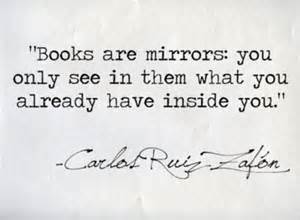
Make revision a priority in your writing. There is a limitless amount of opportunity in the world for people who are willing to have a go. Read the biographies of people you admire, they didn't get it right the first time. The pages of history are the voice of real living people reminding us that “what man has one, man may do.” Great people in history may be described as those who have been great successes in the world, and those who have been equally conspicuous at overcoming great failure. Take comfort and encouragement in the fact that they had difficulties and overcame them, temptations and resisted them, were often weary and yet they never gave up the struggle altogether and were at one time too weak, yet they conquered in the end. Your life will begin to change when you stop limiting your thinking to what is possible. Nothing was ever done, and done earnestly and worthily, that was done with half a heart. On every side, the world bears the stamp of the thoughts and the genius of great men and woman in all the wonderful inventions we use every day. No great works were ever undertaken and brought to fruition by people who were only half hearted. Albert Einstein, the most prominent scientist of the last century was originally looking for a teaching position and he only took on a position at the patent office as an assistant examiner after two years of unemployment. He came to be regarded as the father of modern physics. Nelson Mandel, anti-aparthied activist and winner of the 1993 Nobel Peace Prize has been married three times and spent twenty-seven years in jail in his commitment to peace and reconciliation. While she was writing her multi-million dollar earning Harry Potter series,

J K Rowling was trying to raise a child on her own, living on welfare payments while attending school. Not one of these people would ever have accomplished the great work of their life in the face of great difficulties and bitter opposition if they had gone into their work with only half a heart. Never give up on a story. If it comes from the heart, it deserves the time and effort for you to shine a light on what makes it magical. Revise your work, don't discard a rejected submission.
Talk soon
x Michellewww.michelleworthington.com
Published on January 14, 2016 09:00
January 13, 2016
Top Tips for Literacy: Can we save the bedtime story?
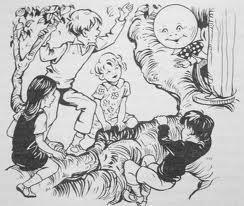
Times have changed, and so have our kids. So have we. Literacy is on the decline and I don't believe bedtime stories are going to save us. If anyone has done a school visits with Prep lately, you will know todays kids are a different creature than they were even 10 years ago. This is a the result of a perfect storm of many things. We can't continue to rely on the things that have worked in the past, because they aren't working any more. Any early childhood teacher will tell you that. And like most teachers will tell you, I absolutely believe that the initial responsibility lies with the parent, not the teacher. Being a parent is hard work. School holidays are nearly done and so am I! When I was working full time, I used to be in tears knowing I wouldn't get to spend time with my kids on the school holidays because I had to work. The mother guilt was overwhelming at times and I was miserable. Now that I have the amazing opportunity of being on extended maternity leave with Tom, I get to spend time with all three of my beautiful boys. Isn't there a quote that says "be careful what you wish for?"
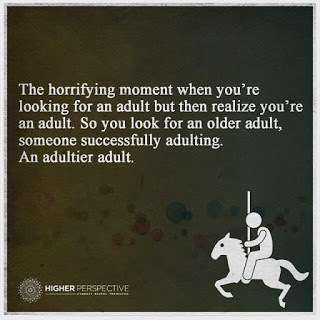 I am exhausted. Just leaving the house is a mission and everything you do costs money. My boys are very different ages; 15, 12 and 1, which gives me the unquie insight to compare bringing up children in different decades (eek) but makes it even more difficult to find things that we can all do together. Where is the happy family fun time that I imagined it would be? Where are all the Facebook photos and gushing tweets about how much I love spending time with my children? I do love spending time with my kids, but they drive me nuts at the same time. When my two bigger boys were younger, I read to them every night. I love bedtime stories. I love the closeness I feel to them and I love creating those memories for them. I love helping them discover the type of story they like reading, the style of pictures they like and the themes they enjoy. There were no Ipads when they were little... Things have changed. I have changed. When I am trying desperately to get Tom to sleep, after a day of cooking (they are eating me out of house and home) cleaning (Tom leaves a trail of destruction wherever he goes) and being referee between the older two fighting, not to mention dirty nappies, bottles, spu, snot and soggy biscuits ground into the carpet, to be honest the last thing I feel like doing is yelling at the big boys to get off their iPads and wrestling Tom still enough to read him a story. I have tried, but Tom is a different creature to my other kids. I blame reading Game of Thrones when I was pregnant with him. At bedtime he turns into the spawn of Satan. He had no interest in bedtime stories. When he was tiny, I would read Enid Blyton to him every night, but that was before he could get away. What has happened to me??? I am a picture book author for goodness sake! I am putting myself out of business! Parents are struggling to find the time or energy to battle not only their exhaustion, but the appeal of Ipads and gaming consoles, to read to their kids at night. This is a fact. This is reality. It can't be passed over as bad parenting. It needs to be acknowledged as the new world order, right or wrong.(My kids didn't have ipads until they were at school and Tom doesn't have one, developmentally he is not ready, he would use it as a teething toy. That is personal preference.)There has to be a way that parents can read to their kids without it being another battle. I think I have come up with a solution that works for my family.
I am exhausted. Just leaving the house is a mission and everything you do costs money. My boys are very different ages; 15, 12 and 1, which gives me the unquie insight to compare bringing up children in different decades (eek) but makes it even more difficult to find things that we can all do together. Where is the happy family fun time that I imagined it would be? Where are all the Facebook photos and gushing tweets about how much I love spending time with my children? I do love spending time with my kids, but they drive me nuts at the same time. When my two bigger boys were younger, I read to them every night. I love bedtime stories. I love the closeness I feel to them and I love creating those memories for them. I love helping them discover the type of story they like reading, the style of pictures they like and the themes they enjoy. There were no Ipads when they were little... Things have changed. I have changed. When I am trying desperately to get Tom to sleep, after a day of cooking (they are eating me out of house and home) cleaning (Tom leaves a trail of destruction wherever he goes) and being referee between the older two fighting, not to mention dirty nappies, bottles, spu, snot and soggy biscuits ground into the carpet, to be honest the last thing I feel like doing is yelling at the big boys to get off their iPads and wrestling Tom still enough to read him a story. I have tried, but Tom is a different creature to my other kids. I blame reading Game of Thrones when I was pregnant with him. At bedtime he turns into the spawn of Satan. He had no interest in bedtime stories. When he was tiny, I would read Enid Blyton to him every night, but that was before he could get away. What has happened to me??? I am a picture book author for goodness sake! I am putting myself out of business! Parents are struggling to find the time or energy to battle not only their exhaustion, but the appeal of Ipads and gaming consoles, to read to their kids at night. This is a fact. This is reality. It can't be passed over as bad parenting. It needs to be acknowledged as the new world order, right or wrong.(My kids didn't have ipads until they were at school and Tom doesn't have one, developmentally he is not ready, he would use it as a teething toy. That is personal preference.)There has to be a way that parents can read to their kids without it being another battle. I think I have come up with a solution that works for my family.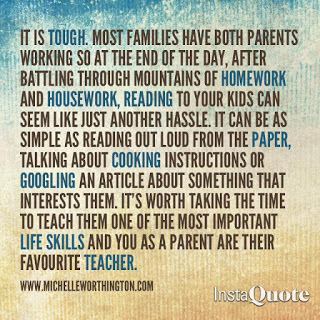 I read Tom the instructions from the recipe (or from the back of the packet) when I am cooking dinner. I get the boys to come and read them out to my while I am cooking. If there is something we hear on the news or on the radio that sparks a discussion between the older boys, I get them to google more information and then come and read it to me while I feed Tom. Tom loves hearing them read to him. We use board books during play time, as part of our daily "let's tire out Tom" routine. He holds a book while I change his nappy and he is learning to turn the pages carefully. I make a big deal about getting the free local paper. Jordan reads books independently at night, he is currently into Stephen King novels, Cody reads magazines and Tom eats whatever paper he can get his hands on. It works for us. Feeling guilty about not reading bedtime stories to your kids shouldn't be another paralysing ploy of mother guilt. With our increasing busy lives, parents need to be smarter about how they are spending their time with the kids in general, making sure reading, reading out loud and sharing a love of reading play some part in day to day life. It doesn't have to be at bedtime, but it needs to be part of the day to day running of the family unit. It will take time to develop.
I read Tom the instructions from the recipe (or from the back of the packet) when I am cooking dinner. I get the boys to come and read them out to my while I am cooking. If there is something we hear on the news or on the radio that sparks a discussion between the older boys, I get them to google more information and then come and read it to me while I feed Tom. Tom loves hearing them read to him. We use board books during play time, as part of our daily "let's tire out Tom" routine. He holds a book while I change his nappy and he is learning to turn the pages carefully. I make a big deal about getting the free local paper. Jordan reads books independently at night, he is currently into Stephen King novels, Cody reads magazines and Tom eats whatever paper he can get his hands on. It works for us. Feeling guilty about not reading bedtime stories to your kids shouldn't be another paralysing ploy of mother guilt. With our increasing busy lives, parents need to be smarter about how they are spending their time with the kids in general, making sure reading, reading out loud and sharing a love of reading play some part in day to day life. It doesn't have to be at bedtime, but it needs to be part of the day to day running of the family unit. It will take time to develop.
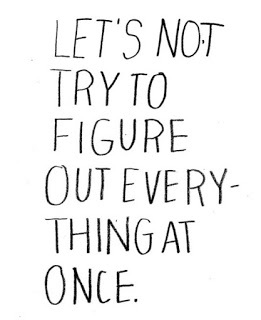 It is important they see that you enjoy to read, not only to them, but for work and for your own enjoyment. If you don't enjoy reading your children bedtime stories, I don't suggest you do it. If you love reading bedtime stories to your children, that's fabulous. Kids today are amazing imitators. Kids are much more practical and visual than my generation. They are less likely to try something they see has no intrinsic value to them. We need to be developing ways of introducing books to kids that will suit their new world and we need to start from when they are very young. We need to start thinking about the skills we are passing on to a new generation and make sure they are suited to the future world that awaits them. It's hard, but it's not impossible.Teach your kids the skill of reading when they are young because it's a life tool they will use everyday of their lives. But if it's not at bedtime, don't stress. Talk soonx Michelle www.michelleworthington.com
It is important they see that you enjoy to read, not only to them, but for work and for your own enjoyment. If you don't enjoy reading your children bedtime stories, I don't suggest you do it. If you love reading bedtime stories to your children, that's fabulous. Kids today are amazing imitators. Kids are much more practical and visual than my generation. They are less likely to try something they see has no intrinsic value to them. We need to be developing ways of introducing books to kids that will suit their new world and we need to start from when they are very young. We need to start thinking about the skills we are passing on to a new generation and make sure they are suited to the future world that awaits them. It's hard, but it's not impossible.Teach your kids the skill of reading when they are young because it's a life tool they will use everyday of their lives. But if it's not at bedtime, don't stress. Talk soonx Michelle www.michelleworthington.com
Published on January 13, 2016 08:00
January 12, 2016
Top Tips for Literacy: How to introduce books to children with SPD
My youngest son, Tom, was born at 28 weeks. He has recently been diagnosed with Sensory Processing Disorder. He doesn't play well with others, he doesn't watch TV and he doesn't read books. As a picture book author, this just about breaks my heart. So, I have been working with his OT and his daycare to find some age appropriate, sensory friendly ways to help him discover and embrace the magic of books.
Firstly, the size of the book bothers him, bigger is not always better. He will open the book to a page but won't allow or initiate page turning. He doesn't like being read to with the book in front of him, but will listen if I am behind.
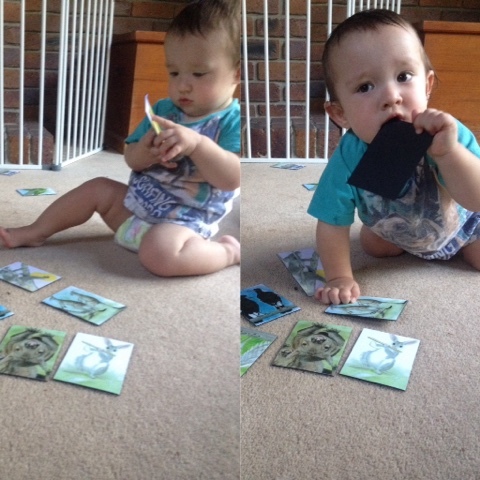
The best thing I have found is making small flash cards using illustrations from books about things he recognises. Although photocopies of books are illegal, being its my book and I asked the illustrator for permission, it should be ok. They are small enough for him to hold in one hand, mounted on black cardboard and without much white space. He picks them up and I turn to the corresponding page of the book. Our record reading time is 2 minutes 40 seconds, we are working on it.
Flash cards have been used for non-verbal children for a long time and I feel they also have a place for children with SPD. I hope publishers can offer more books with corresponding flash cards for special needs children so they can also develop a life long love of reading.
If you would like any flash cards for my books, please contact me and I will be sure to pass on our request to my publishers. It only takes a small movement of like minded people to make the world a better place.
Talk soonX Michelle www.michelleworthington.com www.michelleworthington.com
Firstly, the size of the book bothers him, bigger is not always better. He will open the book to a page but won't allow or initiate page turning. He doesn't like being read to with the book in front of him, but will listen if I am behind.

The best thing I have found is making small flash cards using illustrations from books about things he recognises. Although photocopies of books are illegal, being its my book and I asked the illustrator for permission, it should be ok. They are small enough for him to hold in one hand, mounted on black cardboard and without much white space. He picks them up and I turn to the corresponding page of the book. Our record reading time is 2 minutes 40 seconds, we are working on it.
Flash cards have been used for non-verbal children for a long time and I feel they also have a place for children with SPD. I hope publishers can offer more books with corresponding flash cards for special needs children so they can also develop a life long love of reading.
If you would like any flash cards for my books, please contact me and I will be sure to pass on our request to my publishers. It only takes a small movement of like minded people to make the world a better place.
Talk soonX Michelle www.michelleworthington.com www.michelleworthington.com
Published on January 12, 2016 08:00
January 11, 2016
Top Tips for Author Visits: How to help children with learning or behavioural disorders enjoy reading
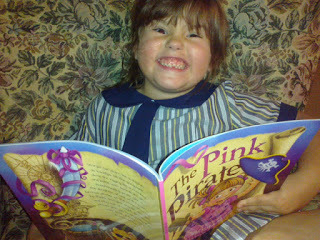 Children with learning and behavioural disorders, like my sons and niece, are notoriously reluctant readers. They have trouble integrating sensory input and reading involves more senses than you realise: the size and shape of the book, the colours, the type, the feel of the cover and the pages, the way the words on the page are read aloud and the need to be stationary in order to decipher the code they call reading.
Children with learning and behavioural disorders, like my sons and niece, are notoriously reluctant readers. They have trouble integrating sensory input and reading involves more senses than you realise: the size and shape of the book, the colours, the type, the feel of the cover and the pages, the way the words on the page are read aloud and the need to be stationary in order to decipher the code they call reading.Consider a child who struggles with sensory processing when it comes to reading
Unless it is a well known book, the fact the words are unknown can be unnervingMay be distracted by background noises Doesn't like the close proximity of the reader to the child Wanting to read the pages out of order
Tips to help
Let them touch the book before you start reading. It might take a couple of tries or you might like them to select their own book before you read your own. Establish a comfortable personal space Be slow and deliberate in your movements, especially when turning the page and pointing to words Keep your voice low and calm, limiting expression to what is needed for understanding Look at the pictures in the book first before going back and reading the words. Allow fidgety behaviour and if the child is unable to sit still, stand up and walk around while reading
Sensory issues can affect daily functioning in young children but with the right strategies introduced as early as is appropriate for each individual child, they can come to see books as a source of enjoyment, a place of knowledge and they too can become life long readers.
If you would like to talk more about SPD and reading, or if you would like me to come to your special school to do an author visit, please contact me.
Talk soon
x Michelle
www.michelleworthington.comwww.michelleworthington.com
Published on January 11, 2016 08:00
January 7, 2016
Top Tips for Authors: Marketing Reading to Modern Kids
 A study undertaken by the Australian bureau of Statistics in 2000 reported that virtually all Australian children (97%) aged 5 to 14 watched television during their free time. New research reveals the average Australian household is using social media instead and has up to eight internet-connectable devices with 70% of Australians to have their own tablet by 2017, 7% will be children. Since their launch, tablets have become increasingly popular in preschool and early-years learning. And, in growing numbers, parents are buying them for home use.
A study undertaken by the Australian bureau of Statistics in 2000 reported that virtually all Australian children (97%) aged 5 to 14 watched television during their free time. New research reveals the average Australian household is using social media instead and has up to eight internet-connectable devices with 70% of Australians to have their own tablet by 2017, 7% will be children. Since their launch, tablets have become increasingly popular in preschool and early-years learning. And, in growing numbers, parents are buying them for home use.Rosie Flewitt, of the Institute of Education at the University of London, has published research on how iPads can support literacy in nursery, early primary and special education. "Children have been born into a world where these things exist," she says, "like we were born into a world where there were televisions, cars on the streets and packaging on food." There is a strong body of evidence that tablet use can boost a child's rate of literacy learning.
It seems that opinion is divided on whether they are 'good' or 'bad', but one thing is for sure, they are here to stay. Social media needs to be a part of an author's marketing toolkit in order to reach parents and children and remind them about the unplugged free time tool; the book.
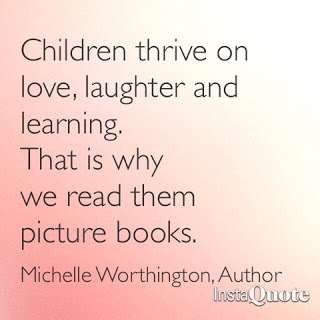
Books are also here to stay as sales in both Australia and the US show a decline in ebooks and a growing picture book market. Ipads are nothing to be scared of. They are an amazing way for authors to connect with an international customer base and grow a love of literacy in children all over the world.
Reading has to be marketed as an alternative to screen time by authors, parents and teachers in order for children to retain their innate curiosity, build their imagination and promote curiosity and questioning of the status quo. Through reading, children develop the skills they need to construct and deconstruct how social media positions them as an audience and become more discerning viewers. Diversity in books helps children differentiate between the constructed reality presented by social media and the socially accepted values in the real world. Books are still important.
Talk soon
Michelle
www.michelleworthington.com
www.michelleworthington.com
Published on January 07, 2016 08:00
January 6, 2016
Top Tips for Authors: Giving Children a Voice
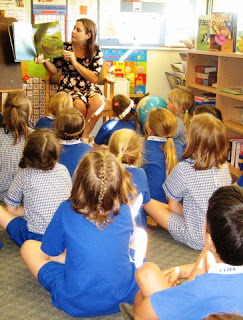 Picture books can change the world because they are about children's minds, feelings and souls. Their voices are echoed in the pages of a picture book and it is how children learn to make and communicate meaning in their world. It is also how parents, caregivers and teachers can influence a child's development and encourage life long learning. However, the value of picture books is often misunderstood or even undervalued.
Picture books can change the world because they are about children's minds, feelings and souls. Their voices are echoed in the pages of a picture book and it is how children learn to make and communicate meaning in their world. It is also how parents, caregivers and teachers can influence a child's development and encourage life long learning. However, the value of picture books is often misunderstood or even undervalued. Picture books involve expressive and symbolic modes of thinking, understanding and knowing and communicate ideas in a unique, age appropriate manner. Picture books can be described as a 'language' that children understand. In a world where children are bombarded with commodities than cross TV, toys, fast food packaging, video games, clothes, internet and social media, picture books are a safe space where they can pick and choose what they want to be exposed to. In picture books, they are looking for their own voice.
Diverse picture books teach children to be a thinker, a theorist, question ideas and foster curiosity. The modern child already knows a lot of things by the time they come to formal education and are competent individuals. Picture books share new ideas in a meaningful and effective way where they learn through active engagement.
Teachers can use picture books in the classroom as a way of better understanding the processes and procedures chose for learning, allowing them to build on the curriculum by allowing the children themselves to show what they know and what interests them through their individual choice of picture books.
Publishers are embracing the need for picture books in the classroom, and with the growing swell of diversity in emerging writers, children are being exposed to some amazing new voices, some that for the first time will make children feel heard. It's a very exciting time to be a picture book author.
Talk soon,
Michelle
www.michelleworthington.comwww.michelleworthington.com
Published on January 06, 2016 08:00



